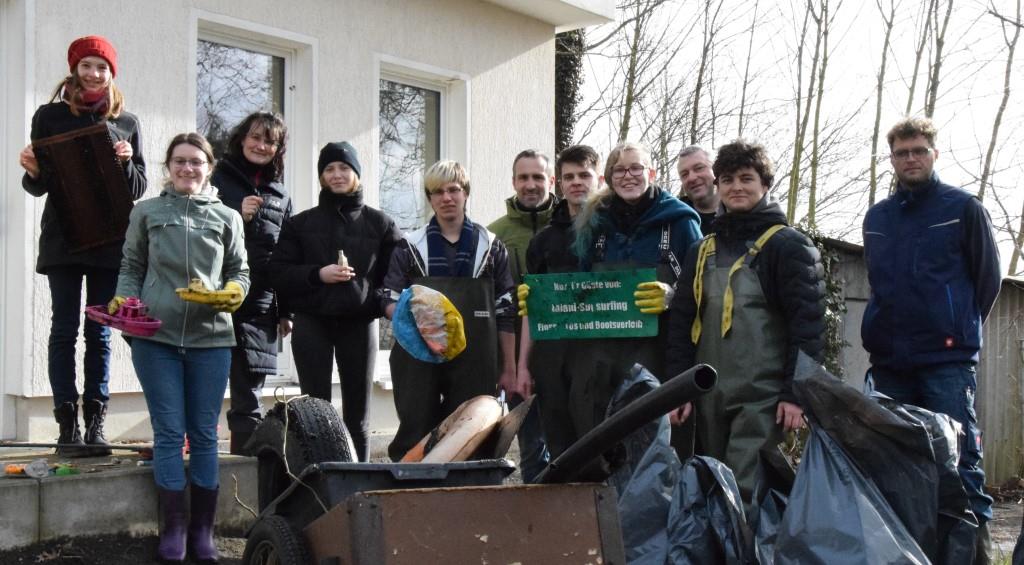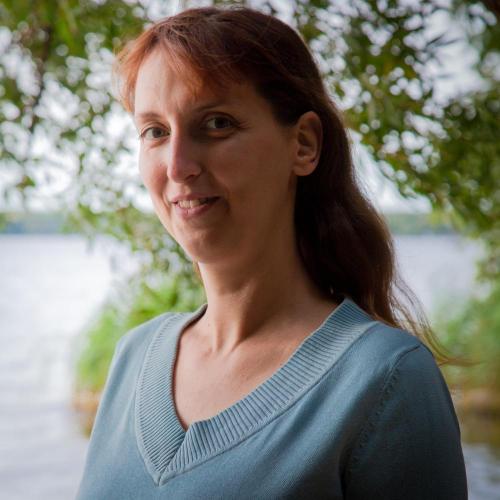
Photo: David Ausserhofer
Bachelor's and master's theses
IGB offers the opportunity to write your bachelor's or master’s thesis, provided that both sides express a mutual interest and a suitable topic is available. Please contact the relevant scientists from the departments.
Internships
Each year, we offer a limited number of internships. These can be either mandatory internships (for pupils and students) or voluntary internships for a duration of up to four weeks. Longer periods can also be arranged on a case-by-case basis. Interns can be deployed in any of IGB’s research departments. Please send your unsolicited application, containing a letter of motivation, Curriculum Vitae and certificates, as a single pdf file by email to the secretary’s office of the department that interests you:
- (Dept. 1) Ecohydrology and Biogeochemistry >
Contact person: sylvia.kanzler(at)igb-berlin.de - (Dept. 2) Community and Ecosystem Ecology >
Contact person: nadine.rymarczyk(at)igb-berlin.de - (Dept. 3) Plankton and Microbial Ecology >
Contact person: susanne.schuetz(at)igb-berlin.de und manuela.rauschenbach(at)igb-berlin.de - (Dept. 4) Fish Biology, Fisheries and Aquaculture >
Contact person: susanne.joop(at)igb-berlin.de - (Dept. 5) Evolutionary and Integrative Ecology >
Contact person: nadine.rymarczyk(at)igb-berlin.de
Our secretaries will then forward your documents to the relevant members of staff. After reviewing whether we will be able to accept you for the specified period, we will contact you. We look forward to receiving your application at any time of the year!
Voluntary ecological year (FÖJ)
Young people also have the opportunity to serve a voluntary ecological year at IGB, starting on 1 September each year. In this context, we work closely with the supporting organisations Jugendwerk Aufbau Ost (JAO), the Vereinigung Junger Freiwilliger (VJF) and the Internationale Jugendgemeinschaftsdienste (ijgd). Volunteers can choose to engage in various working groups in any of the following areas:
- Breeding and reintroducing the sturgeon/aquaculture
(husbandry, feeding, changing water, weighing) - Fish behaviour/individual behaviour, swarming behaviour and animal welfare
(fish care, Robofish, experiments, evaluation of behavioural experiments) - Supporting experiments in the Daphnia lab
- Assistance in the chemistry laboratory analysing water samples for their constituents
(sampling and measurements in the field) - Supporting laboratory and field experiments with aquatic plants and periphyton
(chemical laboratory and data analyses, Chla chromatograms, microscopic counting of growth organisms) - Processing of invertebrate samples from the long-term lake monitoring programme
(sampling, sorting and identifying macrozoobenthos from Müggelsee and Stechlinsee, preparation and post-processing of filters for C/N determination)

Eager "Ökis" after a trash collection campaign – but of course they do much more than that during their FÖJ! | Photo: Nadja Neumann
Tasks include animal care, feeding the fish and cleaning the aquariums, as well as laboratory work such as test preparation, sampling, sample preparation and processing, water analyses and smaller, independent laboratory analyses. Data collection and maintenance as well as initial data analyses are also among the tasks in most working groups. In the course of the year, the opportunity may also arise to participate in field work for several days. In addition, all FÖJ volunteers are cordially invited to attend scientific lectures and presentations which are held every (second) week. Our volunteers gain insight into:
- scientific work for career guidance
- laboratory skills, experimental field work, handling chemicals
- the responsible handling of laboratory animals
- independent experimental setup and sample treatment
- involvement in experimental procedure, data acquisition and data evaluation
Alina Heide did a Voluntary Ecological Year at IGB and described her experiences as follows:
"I take care for the Arapaimas and sturgeons in the aquarium hall. In the laboratory I learn how to work scientifically. I can apply the knowledge I have gained in my own little project. So far I have been able to participate in many exciting and interesting activities, including fish-sampling in Lake Müggelsee, taking samples in Bautzen and visiting the research facilities at the Humboldt Universität. The knowledge and the practical relevance prepare me well for my planned studies in biology."
Your contact person at IGB is Asja Vogt. If you are interested in serving a Voluntary Ecological Year at IGB, please first contact one of the above mentioned supporting organisations.



